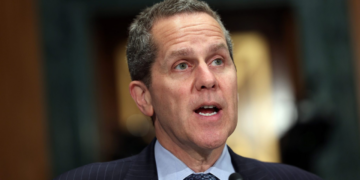The looming U.S. government shutdown could have far-reaching, long-term consequences for attraction and recruitment efforts in the public sector. Beyond a shutdown’s immediate harm to the current federal workforce and the services they provide, The Washington Post spotlights one of the most pressing concerns is the potential deterrent this poses for younger workers considering a career in public service.
By the end of 2025, approximately 31% of the country’s 2 million full-time federal employees will be eligible for retirement, according to the Washington Post. This figure is projected to rise to 47% by 2030.
Alarmingly, the government is lagging in successfully attracting younger employees. Only 7% of full-time federal workers are reported to be below 30 years of age, a stark contrast in comparison to the 20% representation of this age group in the broader U.S. labor force. In areas of critical importance, such as federal IT, there are nearly 14 times more employees over 50 than those under 30.
If the government shuts down, it would be the 22nd shutdown to occur within the last five decades, according to The Hill. The imminent shutdown, triggered if Congress fails to fund the government by the October 1 deadline, is expected to exacerbate already challenging recruitment efforts.
During a government shutdown, many employees will be told to stay home, and others will be expected to work without pay. Experts believe the appeal and perceived stability of government jobs will diminish further in the eyes of younger workers searching for work when they see the strain a shutdown will put on the finances of current employees.
Even if a young employee decides to search for federal employment, the hiring process is both complex and prolonged. On average, it takes the government 98 days to onboard new talent, more than twice the duration in the private sector, according to The Washington Post. The outdated hiring system, rooted in a 1949 law, reportedly struggles to compete with the agility and compensation of the private sector. To address these challenges, federal agencies will need to modernize their recruitment strategies.
As more of Gen Z enters the professional workforce, every organization could benefit from recruiting young, diverse talent — and the federal government’s need is particularly acute given the impending retirement wave on the horizon. The potential shutdown could further alienate Gen Z, of whom only 14% aspire to work in government. This trend, if not addressed, could have lasting implications for federal employers.















